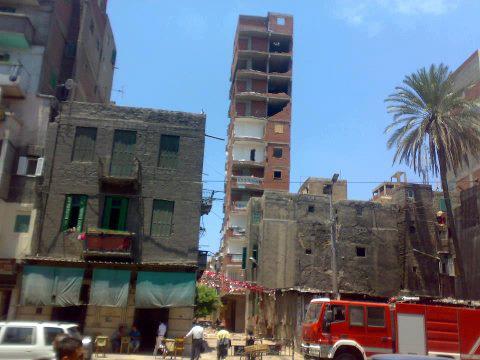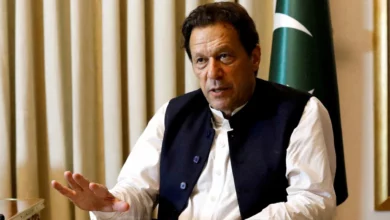
During the past two weeks, Egyptians have been raging over repeated power cuts and water shortages that last for hours, and sometimes days.
People across the governorates have taken to radical methods of protesting by setting fire to tires and blocking roads, in addition to sitting-in before governors’ offices as they complain about having to pay for shoddy services.
These are all are symptoms of the deteriorating state of Egypt's municipalities, a long-standing problem stemming from strictly centralized governance, a lack of accountability, rampant corruption and elected local councils that are effectively powerless. A new law in the making doesn’t promise clear solutions to these problems.
The current law
Local administration in Egypt is divided into two arms. The first is the executive council, composed of the governors, heads of cities, districts and villages, in addition to heads of directorates such as education, security or health. The second is the popular local council, whose members are elected, with at least 50 percent of the seats allocated to workers and farmers. The elected councils are supposed to monitor the performance of the executive ones.
According to the Ministry of Local Development, municipalities provide citizens with 70 percent of basic public services, such as paving roads, garbage collection, electricity, water and sewage in addition to issuing licenses to open shops and construct buildings, among many others.
“Municipalities are the country’s backbone,” said Mostafa Shouman, founder of Ma7liat (Municipalities), a grassroots initiative that campaigns to develop Egypt’s local administration and spread awareness about its importance. Ma7liat also works as a pressure group on the government to change the local administration law.
The law (43/1979) governing municipalities doesn’t give the elected councils real power to be able to properly monitor the executive councils or to make their own decisions, said Shouman. The law was written during former President Anwar Sadat’s era, and was amended many times by toppled President Hosni Mubarak to shrink the powers of the popular councils. He also changed the term from “local governance” to “local administration,” as the word “governance” hinted at more independence.
Popular councils’ members cannot investigate or withdraw confidence from the executive councils, as the law only grants them the right to request information.
Shouman condemned the law for giving the governor and the prime minister the jurisdiction to reject and cancel local councils’ decisions, as well as to dissolve them when they see fit.
“How come I give the governor and prime minister the power to dissolve the entity that monitors them? That means whenever the councils criticize them, they will get rid of them,” Shouman said.
The country’s popular local councils were dissolved last year by a military decree following the 25 January revolution and a court verdict that ordered their dissolution. Since then, elections haven’t taken place and only the executive councils are in charge.
The law also stipulates that the president appoint the governors, and that the prime minister appoint the heads of districts. Many activists have been calling for these posts to elected, rather than appointed, in order to break the patronage networks of the ruling party.
Another hindrance to the municipalities’ ability to provide proper services to their citizens is the high level of both fiscal and administrative centralization.
Decisions or suggestions by the local councils have to first pass by the governor, who then discusses it with the government to ensure feasibility, said Shouman.
Popular councils don’t have power over how their budget is allocated across different sectors, as the law only allows them to discuss their budget after the executive council prepares it, not to make changes.
This lack of transparency leaves a lot of space for corruption.
According to Seif al-Khawanky, a political researcher who has done work on local administration, corruption in municipalities happens in two forms. The first is through taking bribes from citizens.
A survey done on the business community that Khawanky worked on in 2009 showed that municipalities represent the most corrupt institutions, as small and medium enterprise owners said they had to pay bribes for the issuance of licenses and approvals on projects.
Shouman also said that 61 percent of bribes occurring in Egypt are made to municipalities, adding that one way to counter this problem is to increase salaries of municipalities’ employees so that they don’t need to ask for bribes to do their work.
Issuing licenses through bribes can be hazardous as it leads to illegal practices, such as the recent Alexandria tragedy when an 11-story apartment building collapsed in the working-class neighborhood of Gomrok, leading to the fall of three neighboring buildings and killing 19.
The second most frequent form of corruption takes place through private funds, argued Khawanky. Private funds, which are created at the governors’ discretion, are a means of generating revenue for municipalities by taking money from the different fees that people pay for services.
“The problem is that these funds are not included in the national budget and don’t undergo any kind of oversight, which means that they get stolen or squandered,” said Khawanky.
Corruption had been exacerbated in municipalities by the intricate patronage networks of the now dissolved National Democratic Party (NDP), whose members used to dominate the popular councils as elections were rigged in their favor and voter turnout was low.
That meant that the NDP controlled both the executive and elected councils, especially as employees in the executive councils used to run for elections in the popular councils.
New law in the making
The Ministry of Local Development has been drafting an amendment to the current local administration law that attempts to decentralize governance in Egypt and to give more power to the municipalities.
“Decentralization is the main theme of the new draft law,” Mohamed Abdel Zaher, the secretary general of local administration at the Ministry of Local Development, told Egypt Independent.
It grants more powers to the governors so that they have control over all the facilities, entities, companies and local services in the governorate in order to achieve genuine local governance, he said.
Abdel Zaher also claimed that the new bill would maximize the monitoring powers of the elected popular councils by granting their members the right to interrogate and withdraw confidence from the executive councils. More importantly, it puts the private funds under the direct supervision of the elected local councils.
The new bill maintains that governors and other heads of the executive units would be appointed to their positions, and it also keeps the government’s right to dissolve local councils.
Abdel Zaher rejected calls to elect local executives. “In that case, they could easily announce autonomy and make their own states. The status quo ensures the country’s unity,” he said.
Abdel Zaher didn’t give an exact time for the submission of the bill and whether it would be proposed before or after a new parliament is elected to approve it. Shouman argues this move represents an attempt by the government to single-handedly write and issue a law that would protect its interests and that of the Supreme Council of the Armed Forces. The SCAF took over legislative powers after the Parliament dissolution last month.
Ahmed Abou Hussein, a policy analyst specializing in local governance, argues that the amendments to the law represent a gradual process of decentralization which is not enough to uproot the patronage networks of corruption.
“We are in a revolution and gradual decentralization is not the preferred way to do it. The so-called deep state is at the heart of municipalities, and it has to be disbanded by holding elections for all posts, including the heads of cities, districts, provinces and villages,” Abou Hussein told Egypt Independent.
The new executive authority: The Brothers
Saber Abdel Sadeq, a Freedom and Justice Party member and former head of the local administration committee in the dissolved People’s Assembly, told Egypt Independent that there has been coordination between Parliament and the Local Development Ministry since before the dissolution.
The outgoing People’s Assembly, in which the Brothers held a majority, had also been working on a parallel draft law, the fate of which is not known.
Abdel Sadeq supported the gradual administrative and fiscal decentralization scheme introduced in the government’s new bill and the maximization of popular councils and governors’ powers.
“There should be a transfer of power from the central authority to the governorates,” said Abdel Sadeq.
Parliament’s bill, however, included a gradual election of heads of districts, cities, neighborhoods and villages over the years, but not governors, added the former MP. “The governor represents the central authority and has to be appointed by it to carry out its projects,” added Abdel Sadeq.
The People’s Assembly’s bill also maintained the prime minister’s jurisdiction to dissolve local councils.
Meanwhile, Muslim Brotherhood officials told Al-Masry Al-Youm at the beginning of the month that the group is forming civil society organizations to replace the municipal councils that by and large stopped working following Mubarak’s overthrow.
Mohamed Abdullah Sayyaf, a Shura Council member for the Muslim Brotherhood’s Freedom and Justice Party and head of the Brotherhood’s administrative office in Beni Suef, told Al-Masry Al-Youm that the group has launched 70 civil society organizations in different governorates so far. He said they would help supply bread, butane gas and educational services for children.
"The party and the group will depend heavily on the civil society organizations,” he said.
After the local councils became inactive, he said, “It was necessary to find alternatives.”
Some believe that the charity and social services the Brotherhood has been providing on the local level over the years is the main reason for the group’s popularity and its victories in both the recent parliamentary and presidential elections.
But even now that they can freely field their candidates in the local councils’ elections, Amr Darrag, the secretary of FJP in Giza, told Egypt Independent that the Brotherhood would not give up these services.
“The local councils exercise a monitoring role, they don’t offer different activities to the people like we do. There is no conflict here,” said Darrag.
However many of these services are undertaken informally and are not regulated by law. “The law can’t accommodate a huge institution like the Muslim Brotherhood that has hundreds of thousands of members,” Darrag added.




